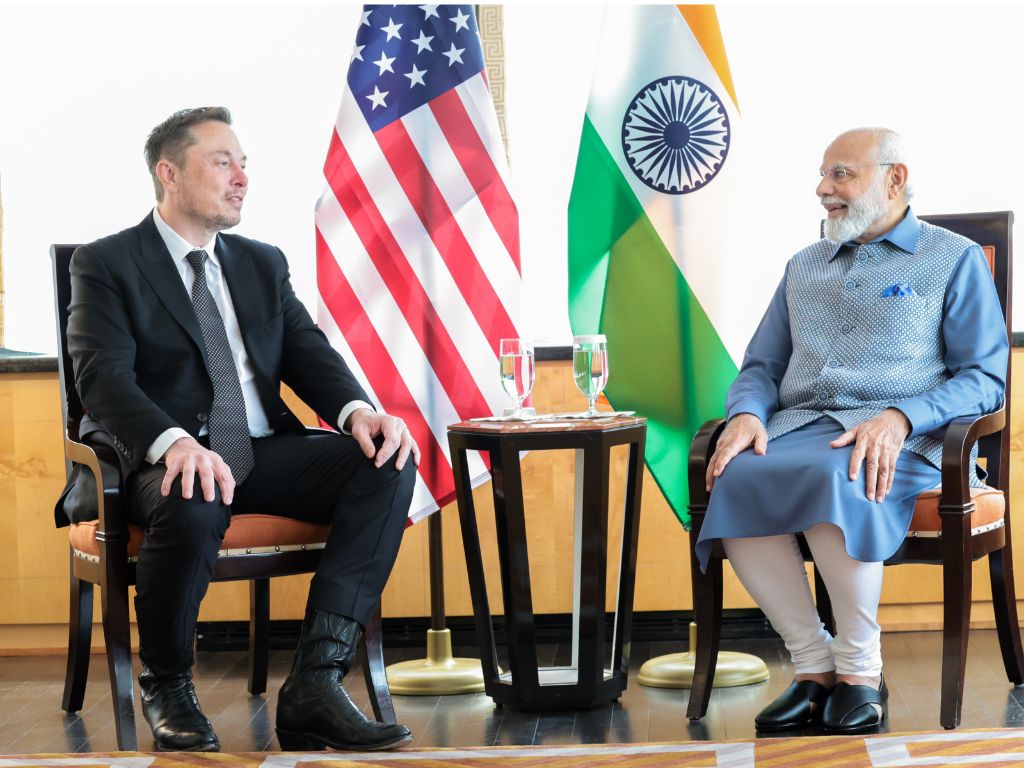- Tuesday, April 22, 2025
an announcement about the same could be made at the Vibrant Gujarat Global Summit to be held in Gandhinagar in the western Indian state in January 2024.

By: Shubham Ghosh
INDIA is nearing an agreement with the USA’s Tesla Inc. that would allow the latter to ship its electric vehicles (EVs) to the South Asian nation from 2024 onwards and set up a factory within a period of two years, Bloomberg reported citing informed sources.
According to the report, an announcement about the same could be made at the Vibrant Gujarat Global Summit to be held in Gandhinagar in the western Indian state in January, one of the sources said on the condition of anonymity.
Another source said the plant could come up in either Gujarat, Maharashtra or Tamil Nadu since they already have established ecosystems for EVs and exports.
Tesla, led by Elon Musk, plans to make an initial investment of nearly $2 billion (£1.59 billion) in any plant, with a goal to boost auto parts purchases from the country to $15 billion (£12 billion). Additionally, the company aims to produce batteries in India to reduce costs, according to an insider.
These plans, however, could change, the report cited the sources as adding. In June, Musk said that Tesla eyes “significant investments” in the South Asian economy and he intends to visit India next year.
Indian industry and commerce minister Piyush Goyal, who visited Tesla’s plant in Fremont, California, earlier in November but could not meet Musk as he was having an ill health, said in September that the US automaker is planning to almost double purchases of auto parts from India to nearly $2 billion in 2023. He also said at an event in New Delhi at the time that the EV maker sourced parts worth $1 billion (£798 million) from the nation last year.
Making forays into the world’s most populous country where demand for EVs is growing, particularly among the ambitious middle-class consumers, would be a boon for Tesla which presently has plants in Germany besides the US and China.
The Indian government has been pushing to boost domestic manufacturing of EVs and more rapid adoption of cleaner transport. However, India’s EV market is still far from taking off due to EVs’ high upfront cost and shortage of charging stations.